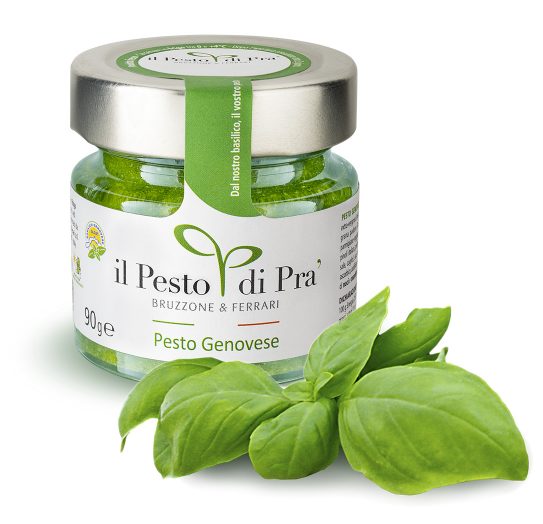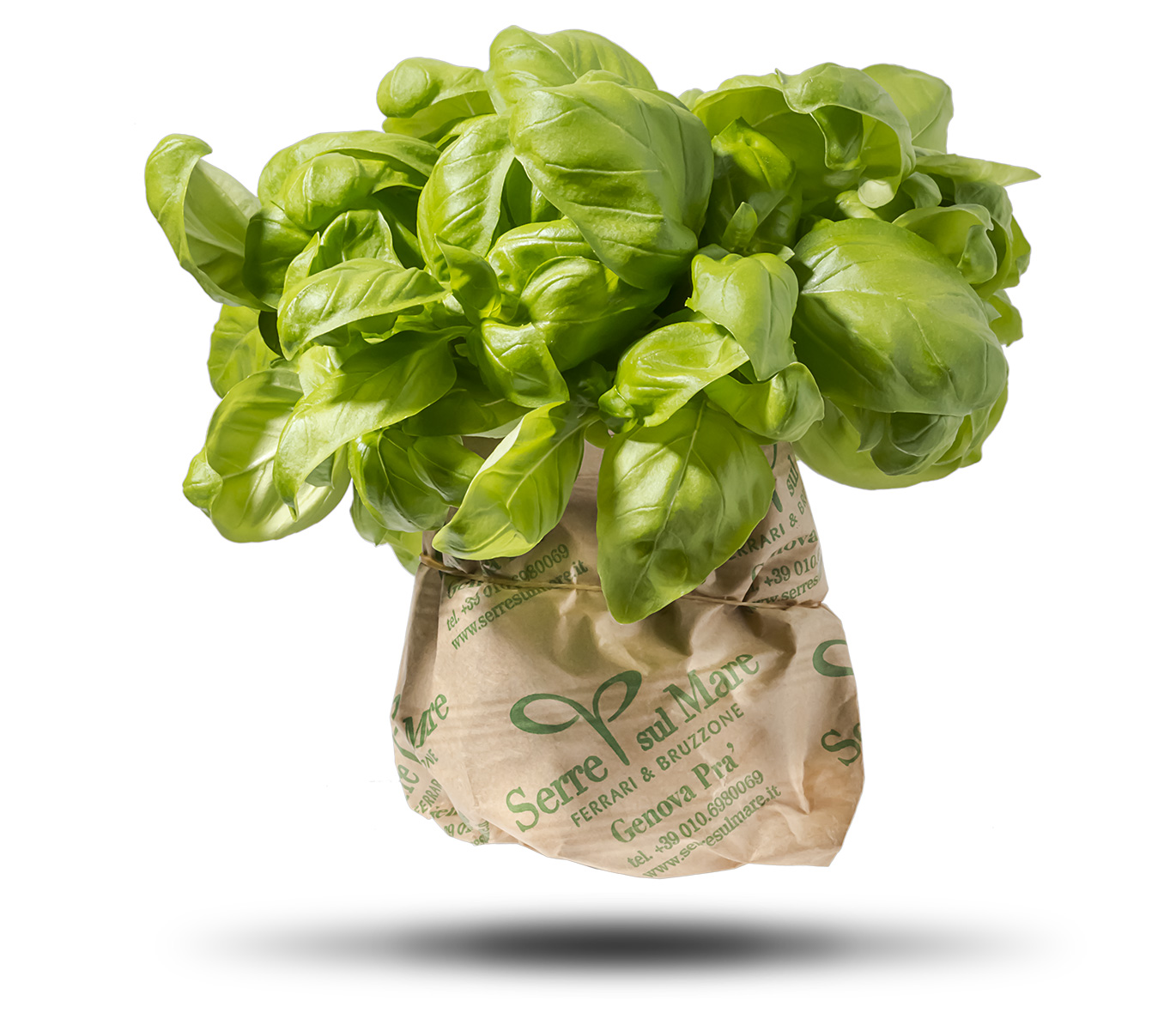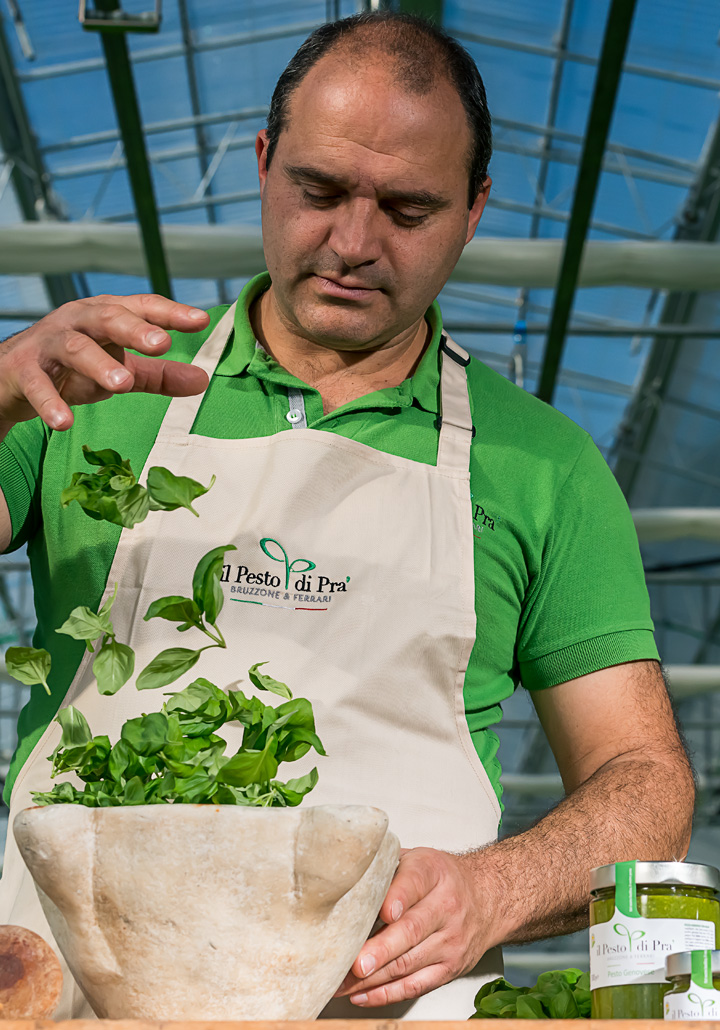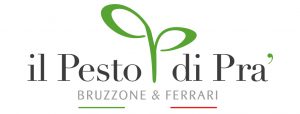We have cultivated Genoese basil in the town of Pra’, located in the western part of Genoa, since 1827. This town is the best location to grow this aromatic plant with which we produce our Genoese Pesto: Pesto di Pra’.

What makes it so unique?
1. 1. The perfect microclimate:
The exposure to the sun of the Ligurian terraced landscape, the proximity to the sea and the Tramontane wind blowing from the Ligurian Apennine mountains make the basil, cultivated in the town of Pra’, unique for its scent delicacy and the intensity of its flavor.
2. Passion and agricultural competence
Since 1827 we have cultivated basil with the passion and the competence that have been passed down to us from one generation to another.
The secrets of our basil!
Agricultural competence
Innovation combined with tradition
Exposure to the sun and proximity to the sea.

Air from the Ligurian mountains
Intense scent & delicate flavor
Bright green leaf
Genoese Pesto is the Ligurian product that mainly represents our region in the world. A sauce rich in history and tradition whose recipe has been passed down to us from our fathers who taught us the steps which consist in wisely measuring out all the ingredients in order to create the perfect balance between the fragrances that make Pesto di Pra’ so unique. Our everyday task is to recreate that same flavor by producing a natural pesto using simple ingredients as for the homemade pesto whose basil, cultivated in Pra’, gives it its unique aroma.
Here is our advice on how to prepare and taste Genoese Pesto:
Ingredients for 4 persons:
3 bunches of basil, 2 spoons of Italian pine nuts, 40 gr/ 1.40 oz grated Parmigiano Reggiano cheese, 20 gr/ 0.7 oz grated Sardinian or Roman pecorino cheese, 1 clove of Italian garlic, 4 spoons Extra Virgin Olive oil, coarse sea salt to taste.
Steps: gather all basil leaves, cleanse them and accurately dry them paying attention not to ruin them. Place pine nuts and garlic in the mortar or blender and blend. Add basil leaves and a pinch of salt and either mash or blend again. In the end, add Extra Virgin Olive Oil and cheese and blend everything together. If you are using the blender, be careful not to overheat the pesto.
Tasting advice:
You can season any kind of pasta with pesto, but tradition says that it is best to eat pesto with specific types of pasta, such as: potatoes gnocchi, lasagna, traditional or chestnut trofie, trenette. The best wines to pair with it are the whites Vermentino and Pigato, and the red Rossese.



 Italiano
Italiano




